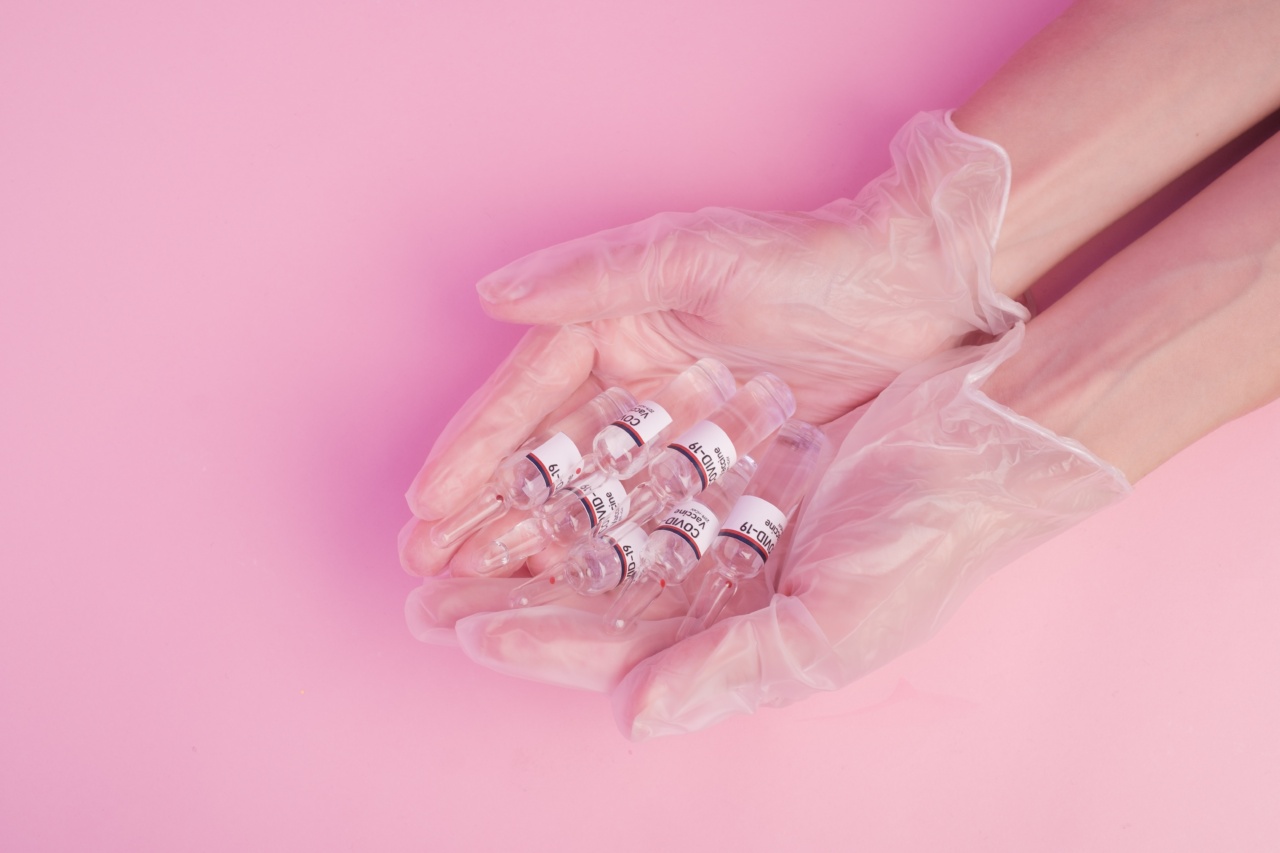Human Papillomavirus (HPV) is a common sexually transmitted infection that can have serious health consequences.
By understanding the risks associated with HPV and taking preventive measures, you can protect yourself and reduce the chances of developing HPV-related health issues. In this article, we will explore the ways to protect yourself from the risks of HPV.
What is HPV?
HPV is a group of over 150 related viruses, with some strains causing warts and others increasing the risk of certain cancers. It is primarily transmitted through sexual contact, including vaginal, anal, and oral sex.
However, it can also spread through skin-to-skin contact in the genital area even if penetration or intercourse does not occur.
HPV Risks and Complications
While some HPV infections resolve on their own without causing any symptoms or health problems, certain types of HPV can persist and lead to various complications, including:.
1. Genital warts: Some strains of HPV cause the development of warts in the genital area. These warts can be itchy, uncomfortable, and may require medical treatment to remove.
2. Cervical cancer: Persistent infection with high-risk HPV strains can increase the risk of cervical cancer in women. Regular screenings and early detection through Pap tests can help prevent the development of advanced-stage cervical cancer.
3. Other cancers: HPV can also lead to cancers of the vagina, vulva, anus, penis, throat, and tongue. These cancers may occur years after contracting the virus, making prevention crucial for long-term health.
Preventing HPV Infection
Protecting yourself from HPV involves a combination of vaccination, safe sexual practices, and regular check-ups. Here are some key measures to consider:.
1. Get Vaccinated
HPV vaccines are available for males and females, and they provide protection against the most common types of HPV associated with genital warts and cancers.
The vaccine is most effective when given before exposure to the virus, typically between the ages of 9 and 12. However, it can also be administered up to age 45 for individuals who have not previously been vaccinated. Consult your healthcare provider to determine if the HPV vaccine is appropriate for you.
2. Practice Safe Sex
Using condoms consistently and correctly during sexual activity provides a certain level of protection against HPV. While condoms don’t provide complete protection, they can reduce the risk of transmission.
It’s important to note that HPV can infect areas not covered by a condom, so additional preventive measures are crucial.
3. Limit Sexual Partners
Reducing the number of sexual partners can lower your risk of contracting HPV. The more sexual partners you have, the more likely you are to come into contact with the virus.
By practicing monogamy or limiting your number of partners, you can decrease your chances of HPV transmission.
4. Regular Check-ups and Screenings
Stay updated with regular check-ups and screenings with your healthcare provider. Pap tests can help detect abnormal cells on the cervix caused by HPV, enabling early treatment and preventing the progression to cervical cancer.
Follow your doctor’s recommendations regarding the frequency of screenings based on your age, medical history, and HPV vaccination status.
5. Educate Yourself and Others
Ensure you have accurate information about HPV, its transmission, and prevention methods. Educate yourself and others, including friends, family, and sexual partners, about the risks and preventive measures associated with HPV.
By spreading awareness, you can contribute to overall public health and encourage responsible behavior.
Conclusion
Protecting yourself from the risks of HPV requires a comprehensive approach that includes vaccination, safe sexual practices, regular screenings, and education.
By taking the necessary precautions, you can significantly reduce the likelihood of developing HPV-related health complications such as genital warts and certain types of cancers. Prioritize your sexual health and consult with healthcare professionals for personalized guidance and advice.





























